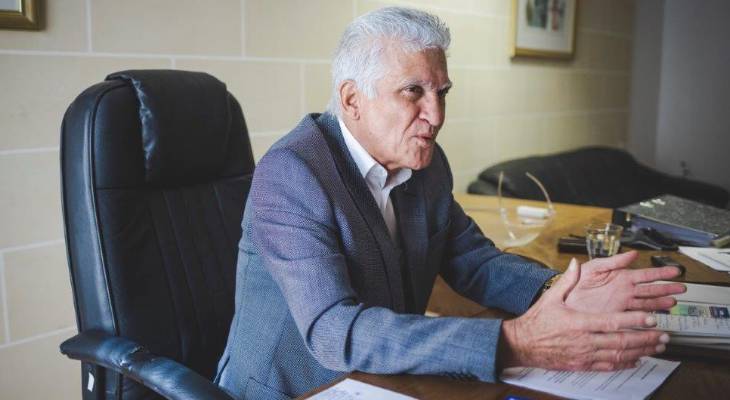Since taking over as Chairman of the Malta Council for Economic and Social Development (MCESD) last August, James Pearsall has clearly stated his determination to bring about a positive change within the MCESD Council with the aim of fostering healthy debate rooted in evidence-based research that will reach concrete objectives.
“I am determined to raise the quality of the discussion within the MCESD while fostering and safeguarding trust between the stakeholders, and prioritising discussions of national importance,” says Mr Pearsall. “I want the MCESD to go from strength to strength and move from informing stakeholders to engaging with them.”
As a forum that brings together representatives from unions, various sectoral committees, employer and employee bodies, the Chairman’s task of finding common ground between widely divergent opinions is not a walk in the park. However, it’s a challenge Mr Pearsall is prepared for, backed by years of experience.

Mr Pearsall began his career at the Malta Drydocks, and has worked extensively in vocational training, where he served as a Director at one of the institutes of the Malta College for Arts, Science and Technology (MCAST).
He is also a former President of the General Workers’ Union and became a member of the MCESD before eventually being appointed as its Chairman. His years spent in education, vocational training and trade unionism, he explains, provided invaluable experiential learning which he applies to his current role.
Among the changes Mr Pearsall has introduced, building on the work of past chairmen, is that of informing stakeholders prior to MCESD meetings on the priority of that meeting, allowing for all participants to prepare and deliver proper feedback.
“Giving thought to the meeting before it happens allows us to gauge the level of interest in the topic at hand, and to assess the level of input from different groups to eventually lead to progress on an issue,” says Mr Pearsall. “Feedback needs to either be tangible progress or an assessment on why progress hasn’t been achieved.”
The Chairman has also established working groups with representatives from every organisation within the MCESD, who focus on thematic areas.
“Representatives within the working groups hold brief meetings on the principles behind an upcoming agenda, such as a discussion on new forms of employment, to understand the depth and breadth of the subject at hand, how long it will take to arrive to a decision about it and who it will impact,” says Mr Pearsall. “This is my direction, to streamline operations and give working groups the backing they need to work. By the time we get to plenary, we’ll be in a position to discuss concrete issues.”
In doing so, the Chairman is pushing to organise the operations of the Council and make the leap from informing stakeholders to engaging with them. “As the main entity in Malta for social dialogue and the experts in this field, this step is vital.”
“The MCESD’s objective is to exist within the paradigm of social dialogue. Having been around for years, it has given many people the opportunity to express their opinions and align with Government’s positions,” the Chairman asserts. “On many occasions, the MCESD was a good interlocutor that averted industrial disputes on hot topics, such as the minimum wage.”
Mr Pearsall is also engaging experts and researchers from specific fields to conduct studies on thematic subjects, which will be used to guide stakeholders in future meetings. “All stakeholders have their own interests to protect, but somehow, MCESD manages to facilitate a healthy discussion and helps to find a way forward.”
One case in point relates to the upcoming 2021 budget, where the Council roped in an expert to assist with compiling all the stakeholders’ many proposals, to help define them and organise them, making it easier for the Finance Ministry to sift through the many concrete proposals for consideration. “In fact, the Finance Minister lauded MCESD for this initiative, and the experts involved too.”
The participation of Government in discussions is crucial, he adds, saying that, without the political will, discussions can go on indefinitely. “Ad hoc discussions solve ad hoc problems,” says Mr Pearsall. “But if social dialogue is objective and built on trust and confidence in each other, you can not only build a society, but also a country.”
Main Image:By Inigo Taylor
